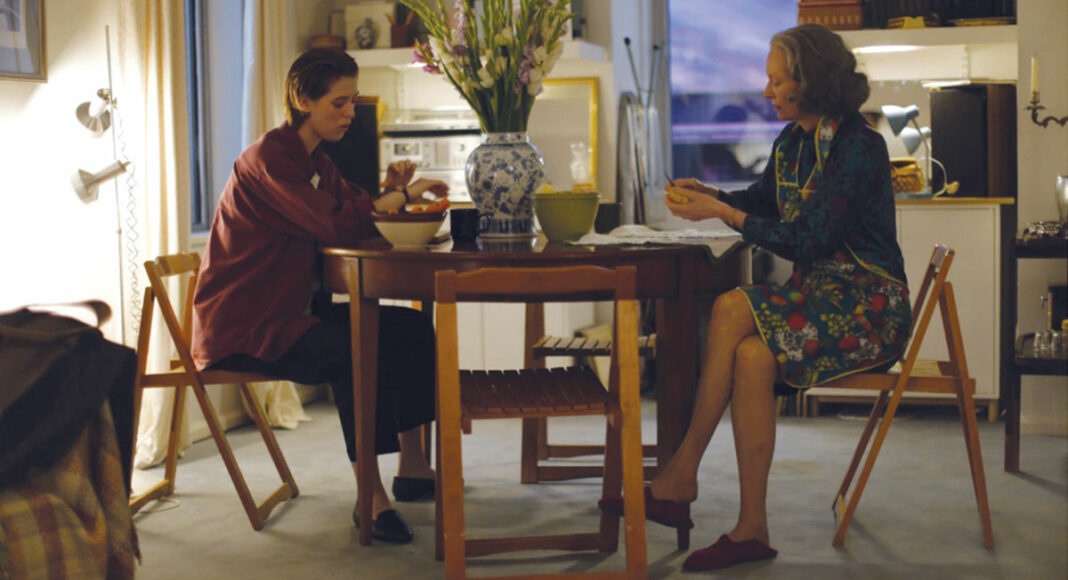Early in the British drama The Souvenir, a young film school student and her soon-to-be lover discuss the nature of film. People don’t want to see movies about life as it’s actually lived, he tells her, but life as it’s “experienced.”
Filmmaker Joanna Hogg, who wrote and directed The Souvenir, attempts to embrace this stated duality of her medium, but she comes up short on both counts. In her movie, mundane, torpor-inducing, slice-of-life scenes vie with more “experiential” scenes of the protagonist absorbing and attempting to process her world—scenes that range from infuriating to nonsensical. In neither aspect does the film offer much that is compelling or rewarding to the viewer.
Julie (Honor Swinton Byrne) is a 24-year-old from a posh suburb in Knightsbridge studying at a film school. She has an idea for a film about a boy so attached to his mother that he becomes obsessed with the fear she might die, which Julie discusses at length during all-night bull sessions with her flatmates.
Into her orbit wanders Anthony (Tom Burke). Not a student himself (he’s a bit older), he nonetheless hangs out with the arty crowd; he smokes incessantly and bloviates pompously on any subject with the same air of bored, complacent arrogance. For reasons unclear, Julie finds this irresistible. Perhaps because the character of Julie as written is so personality-challenged herself, she’s drawn to anyone who has one.
In a couple of scenes before they become lovers, Julie and Anthony share a bed (including a droll reference to the “walls of Jericho” scene in It Happened One Night, where they employ a line of her stuffed animals as a makeshift barrier between them). But mostly, they just talk—in tea shops, art galleries and around the dinner table. The talk isn’t always that interesting, however, and Hogg doesn’t use it to either build character or reinforce the plot. There is no plot, just a series of maddeningly random encounters.
These include an extended visit to Julie’s parents at their country house (her mom is played by Tilda Swinton, Byrne’s mother in real life). We see Julie at work at her typewriter (the story is set in the 1980s), or at the school’s warehouse soundstage, or in an adviser’s office getting an earful on budgeting. But we keep circling back to her relationship with Anthony, who’s forever borrowing money he never pays back, and leaves her to pick up every tab when they go out.
In return, he’s always flinging weighty pronouncements at her about art and life, or reacting with prickly disdain when she does something he doesn’t like. (Largely due to another unattractive habit of his she only finds out about a third of the way into the movie, but which, like others, she tolerates out of some kind of weird emotional inertia.) Theirs is a symbiotic relationship: his skill at exploiting her is matched only by her willingness to let him.
Hogg does indulge in some admirable images, beautiful for their own sake: a grassy field under a vast, pewter sky mottled with bruise-colored clouds; the long train of Julie’s gown whispering up the mountain of shallow steps leading to an opera house in Venice. (Although the brief detour to Venice has nothing to do with the story.)
Evidently, the character of Anthony is based on someone with whom filmmaker Hogg had a relationship when she herself was in film school in this era. But not even 30 years of hindsight enables her to convey onscreen what attracted her to him, or explain his hold on her. The Souvenir may be an act of creative exorcism for her (along with a sequel in the works), but it doesn’t translate so well to viewers living outside the rarefied atmosphere of her personal life and memory.
THE SOUVENIR
** (out of four)
With Honor Swinton Byrne, Tom Burke and Tilda Swinton. Written and directed by Joanna Hogg. An A24 release. Rated R. 120 minutes.












